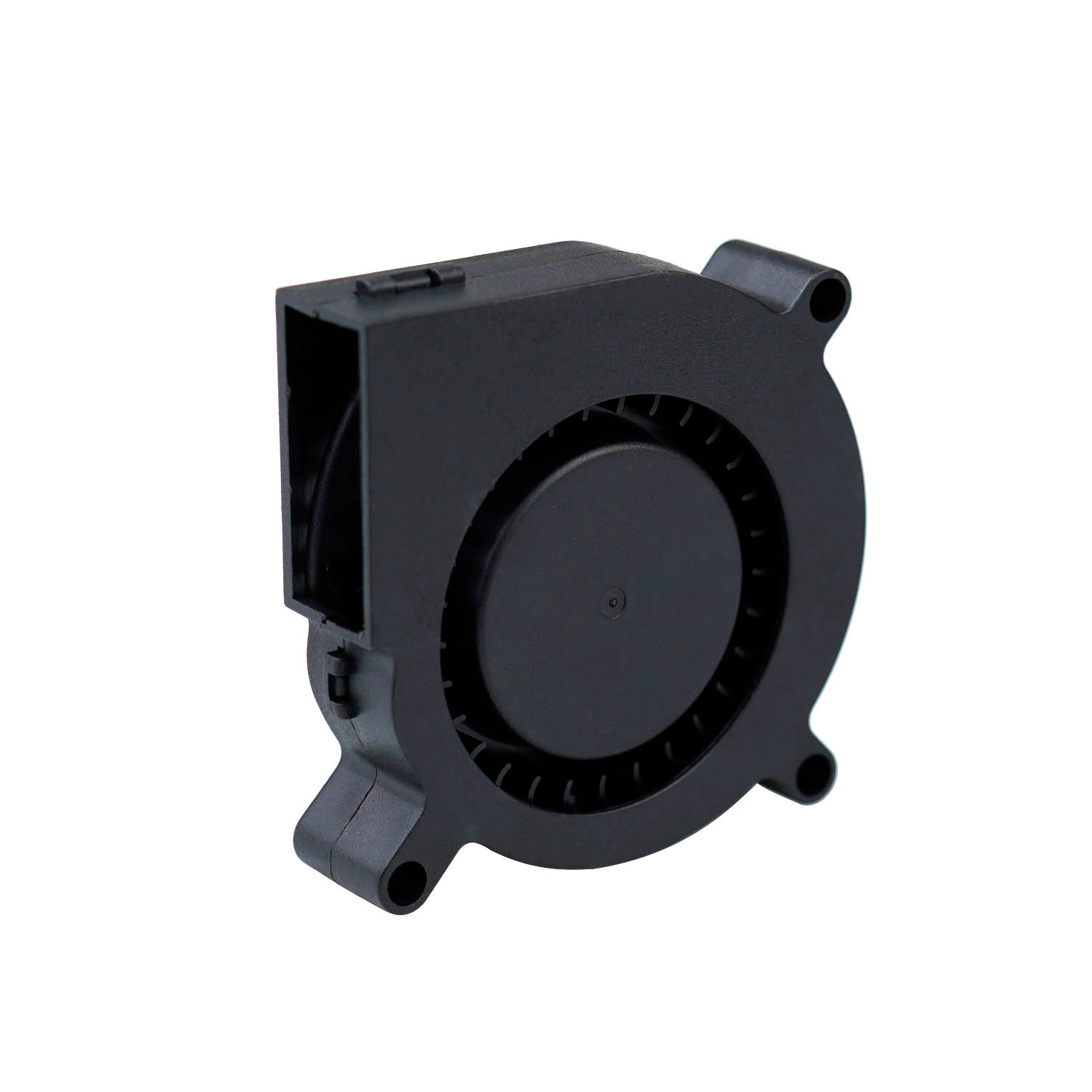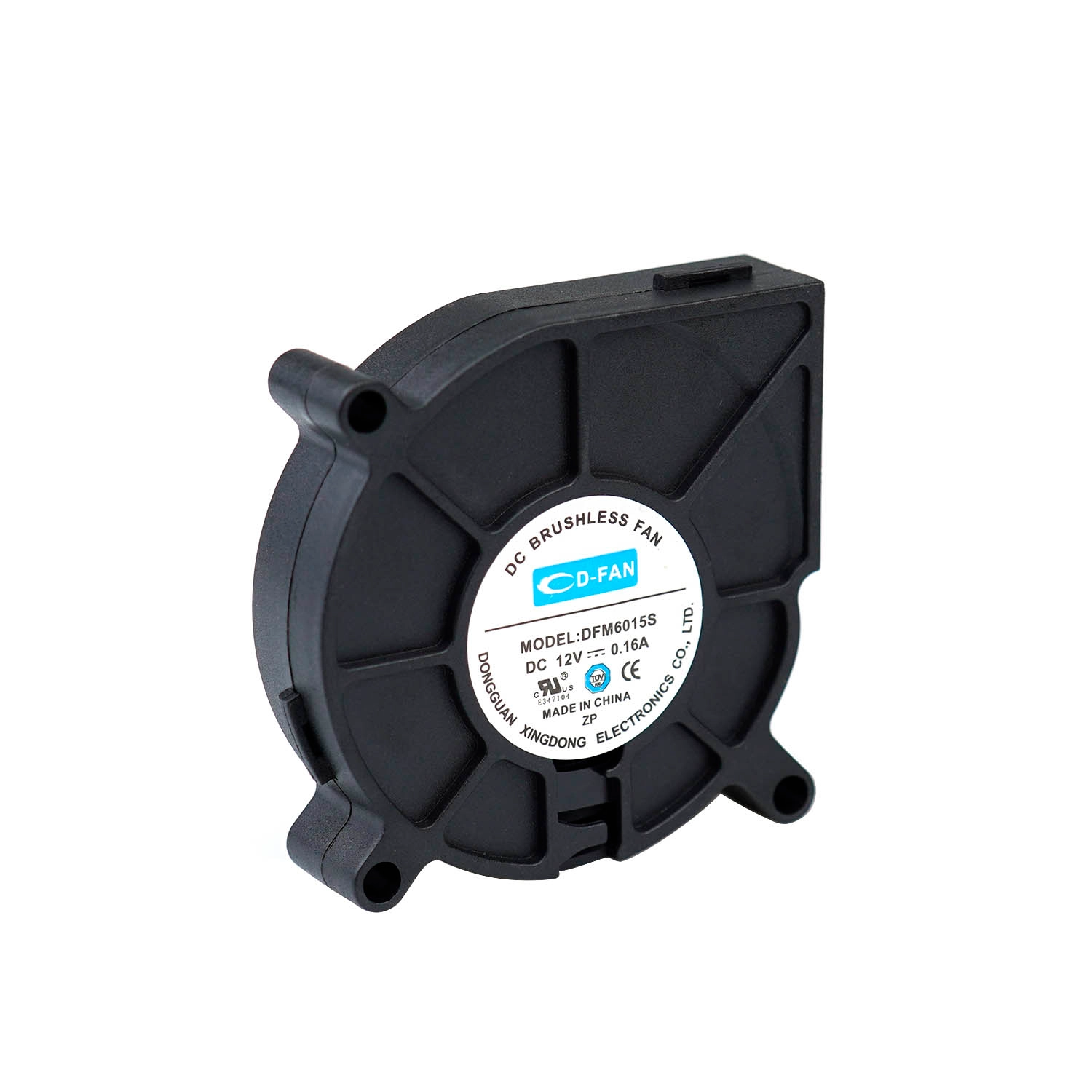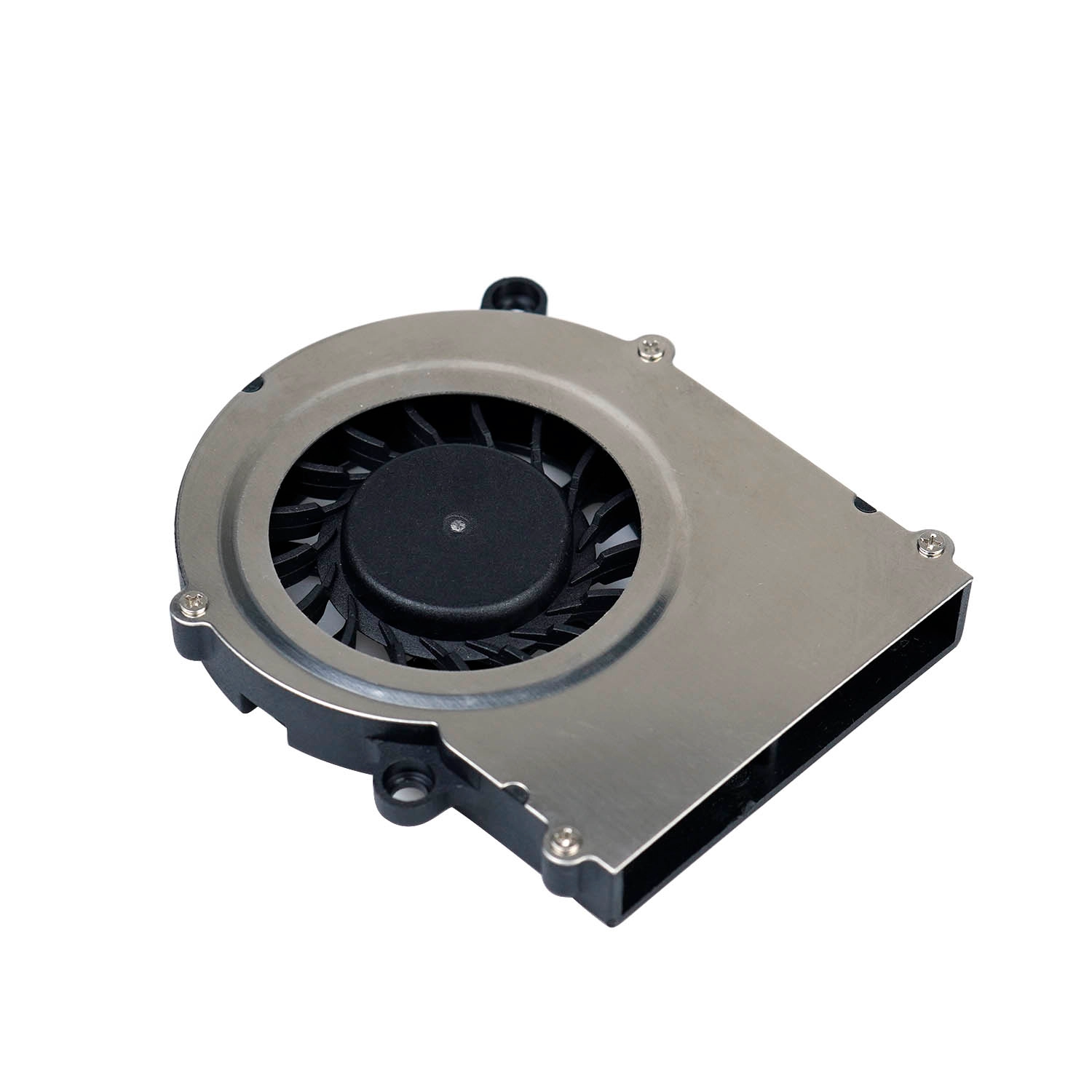In recent years, the demand for efficient and reliable cooling solutions has led to the rise of DC brushless blower fans. These fans are increasingly popular in various applications, from computer cooling systems to HVAC units. This article explores the advantages and disadvantages of DC brushless blower fans, providing a comprehensive understanding of their functionality, efficiency, and suitability for different environments.
Understanding DC Brushless Blower Fans
What is a DC Brushless Blower Fan?
A DC brushless blower fan is a type of electric fan that uses a brushless direct current (DC) motor to drive the fan blades. Unlike traditional fans that use brushes to transfer electricity to the motor, brushless fans utilize electronic controllers to manage the motor's operation. This design results in several benefits, including increased efficiency, reduced noise, and longer lifespan. The brushless design not only enhances performance but also minimizes the risk of mechanical failure, making these fans a reliable choice for various applications.
How Do They Work?
DC brushless blower fans operate by converting electrical energy into mechanical energy without the friction associated with brushes. The motor consists of a rotor and a stator, where the rotor spins within the magnetic field created by the stator. This design minimizes energy loss and enhances performance, making these fans ideal for applications requiring consistent airflow and low power consumption. The electronic controller adjusts the power supplied to the motor, allowing for smooth operation and precise speed control, which is crucial in environments where temperature regulation is essential.
Advantages of DC Brushless Blower Fans
Energy Efficiency
One of the most significant advantages of DC brushless blower fans is their energy efficiency. These fans can consume up to 70% less power compared to traditional AC fans. This efficiency translates into lower energy bills and a reduced carbon footprint, making them an environmentally friendly choice for consumers and businesses alike. The ability to operate at lower power levels without sacrificing performance means that users can enjoy significant savings over time, especially in applications that require continuous operation.

Longer Lifespan
DC brushless blower fans typically have a longer lifespan than their brushed counterparts. The absence of brushes means there is less wear and tear on the motor, leading to fewer maintenance issues and a longer operational life. Many manufacturers claim that these fans can last up to 50,000 hours or more, depending on usage conditions. This longevity not only reduces the frequency of replacements but also contributes to lower overall maintenance costs, making them a cost-effective solution in the long run.
Quieter Operation
Another notable benefit of DC brushless blower fans is their quiet operation. The design of the motor and the absence of brushes reduce noise levels significantly. This feature is particularly advantageous in applications where noise reduction is essential, such as in residential settings, offices, and medical facilities. The quiet operation allows for a more comfortable environment, enabling users to focus on their tasks without the distraction of loud fan noise. This is especially important in settings like libraries or hospitals, where maintaining a peaceful atmosphere is crucial.
Precise Speed Control
DC brushless blower fans offer precise speed control, allowing users to adjust the airflow according to their specific needs. This flexibility is beneficial in applications where varying airflow rates are required, such as in computer cooling systems or HVAC units. The ability to control speed also contributes to energy savings, as users can operate the fan at lower speeds when full power is unnecessary. This adaptability not only enhances user comfort but also optimizes energy consumption, making these fans a smart choice for energy-conscious consumers.
Compact Design
The compact design of DC brushless blower fans makes them suitable for applications with limited space. Their smaller size allows for easier integration into various devices and systems, from small electronics to larger industrial equipment. This versatility is a significant advantage in modern design, where space optimization is often a priority. The ability to fit into tight spaces without compromising performance opens up new possibilities for innovative product designs, allowing engineers and designers to create more efficient and effective solutions.
Disadvantages of DC Brushless Blower Fans
Higher Initial Cost
While DC brushless blower fans offer numerous benefits, they often come with a higher initial cost compared to traditional fans. The advanced technology and materials used in their construction contribute to this increased price. For budget-conscious consumers or businesses, this upfront investment may be a deterrent, despite the long-term savings on energy and maintenance. However, it is essential to consider the total cost of ownership, as the savings on energy bills and reduced maintenance can offset the initial expense over time.

Complexity of Design
The design of DC brushless blower fans is more complex than that of traditional fans. This complexity can lead to challenges in repair and replacement, as specialized knowledge and tools may be required. In some cases, if the electronic controller fails, it may necessitate the replacement of the entire fan unit rather than just a simple repair. This potential for increased repair costs can be a drawback for some users, particularly in environments where quick and easy maintenance is a priority.
Limited Availability
Although the popularity of DC brushless blower fans is growing, they may not be as widely available as traditional fans. Consumers may find it challenging to locate specific models or sizes, particularly in local hardware stores. This limited availability can be a drawback for those looking for immediate solutions. As demand increases, however, it is likely that more retailers will begin to stock these fans, making them more accessible to consumers.
Sensitivity to Voltage Fluctuations
DC brushless blower fans can be sensitive to voltage fluctuations. In environments where power supply stability is a concern, these fans may not perform optimally. Users may need to invest in additional equipment, such as voltage regulators, to ensure consistent performance, adding to the overall cost of ownership. This sensitivity can be particularly problematic in industrial settings where power supply issues are more common, necessitating careful consideration of the operating environment before selecting a fan.
Applications of DC Brushless Blower Fans
Electronics Cooling
One of the most common applications for DC brushless blower fans is in electronics cooling. These fans are used in computers, servers, and other electronic devices to dissipate heat and maintain optimal operating temperatures. Their energy efficiency and quiet operation make them ideal for this purpose. As electronic devices become more powerful and compact, the need for effective cooling solutions becomes increasingly critical, positioning DC brushless blower fans as a preferred choice in the tech industry.
HVAC Systems
DC brushless blower fans are increasingly being integrated into HVAC systems. Their ability to provide precise airflow control and energy savings makes them a valuable component in modern heating and cooling solutions. These fans help improve indoor air quality while reducing energy consumption. As building codes and regulations become more stringent regarding energy efficiency, the adoption of DC brushless blower fans in HVAC systems is likely to grow, contributing to more sustainable building practices.
Automotive Applications
In the automotive industry, DC brushless blower fans are used for various purposes, including cabin ventilation and engine cooling. Their compact design and efficient operation make them suitable for integration into vehicles, contributing to improved fuel efficiency and passenger comfort. As electric vehicles become more prevalent, the demand for efficient cooling solutions will likely increase, further driving the adoption of DC brushless blower fans in automotive applications.
Medical Equipment
Medical equipment often requires reliable and quiet cooling solutions. DC brushless blower fans are used in devices such as MRI machines, ventilators, and other critical medical equipment. Their low noise levels and long lifespan are essential in maintaining a sterile and comfortable environment for patients. The reliability of these fans is crucial in medical settings, where equipment failure can have serious consequences, making them a preferred choice for healthcare providers.

Conclusion
DC brushless blower fans represent a significant advancement in fan technology, offering numerous advantages over traditional fans. Their energy efficiency, longer lifespan, and quiet operation make them an attractive choice for various applications. However, potential buyers should consider the higher initial cost and complexity of design when making their decision.
As technology continues to evolve, the demand for efficient cooling solutions will likely increase, further solidifying the role of DC brushless blower fans in modern applications. Whether for personal use or industrial purposes, these fans provide a reliable and effective means of managing airflow and temperature, making them a worthwhile investment for the future. The ongoing development in this field promises even more innovations, ensuring that DC brushless blower fans will remain at the forefront of cooling technology for years to come.
Frequently Asked Questions regarding DC Brushless Blower Fan
1. What are the main differences between DC brushless and AC fans?
DC brushless fans use a direct current motor without brushes, resulting in higher energy efficiency, quieter operation, and longer lifespan compared to AC fans, which rely on alternating current and have brushes that can wear out over time.
2. Can DC brushless blower fans be used in outdoor applications?
Yes, DC brushless blower fans can be used in outdoor applications, but it is essential to choose models specifically designed for outdoor use. These models typically have weather-resistant features to withstand environmental conditions.
3. How do I determine the right size of a DC brushless blower fan for my application?
To determine the right size, consider the airflow requirements (measured in cubic feet per minute, or CFM), the space available for installation, and the specific cooling needs of your application. Consulting manufacturer specifications can also help in selecting the appropriate model.
4. Are DC brushless blower fans more expensive to maintain than traditional fans?
While DC brushless blower fans may have a higher initial purchase price, they generally require less maintenance due to their longer lifespan and fewer moving parts. This can lead to lower overall maintenance costs over time.
5. What factors should I consider when installing a DC brushless blower fan?
When installing a DC brushless blower fan, consider factors such as the power supply requirements, the fan's airflow capacity, noise levels, and the specific cooling needs of your application. Additionally, ensure proper mounting and ventilation to optimize performance.






